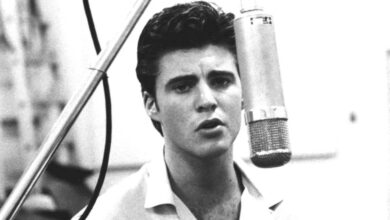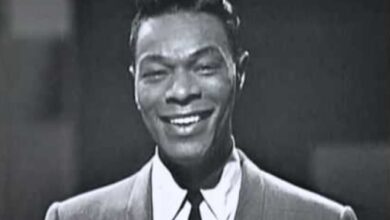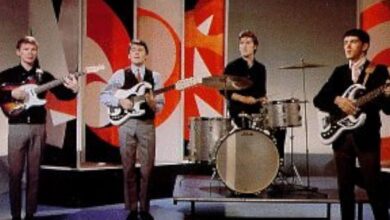CHIC’s ‘Le Freak’ Redefines Disco and Breaks Records in 1978
In 1978, Le Freak by CHIC burst onto the music scene with an irresistible groove that would become one of the defining anthems of the disco era. Released on September 21, the song quickly climbed the Billboard Hot 100, eventually reaching No. 1 and holding that position for a total of six weeks. It became the best-selling single in Atlantic Records’ history at the time and remains one of the most commercially successful disco tracks of all time. With its infectious guitar riffs, funky basslines, and celebratory energy, Le Freak captured the exuberance of late ‘70s nightlife while also setting a new standard for dance music.
CHIC, founded in 1976 by guitarist Nile Rodgers and bassist Bernard Edwards, was a group that seamlessly blended funk, R&B, and dance music into a sleek and sophisticated sound. Both Rodgers and Edwards were session musicians before forming the band, and their meticulous approach to rhythm and groove set them apart. They were instrumental in refining the disco sound, creating tracks with tight, hypnotic grooves that were as appealing to radio audiences as they were to club-goers. Along with drummer Tony Thompson and lead vocalists Alfa Anderson, Luci Martin, and Norma Jean Wright, CHIC quickly became one of the most influential groups of the disco era.
The inspiration for Le Freak came from an unexpected and frustrating experience. On New Year’s Eve in 1977, Rodgers and Edwards were invited to Studio 54, the legendary New York nightclub that was the epicenter of disco culture. However, when they arrived, the doorman refused them entry, allegedly saying, “Sorry, you’re not on the list.” Frustrated, the duo returned to Rodgers’ apartment, picked up their instruments, and started jamming. The song initially featured the lyrics “F*** off!”—a direct response to their rejection—but they later changed it to the now-iconic “Freak out!” to give the song a more celebratory and universal appeal.
The recording of Le Freak took place at The Power Station in New York City, with Rodgers and Edwards overseeing the production. The track’s signature groove was built around Edwards’ bassline, which provided a solid foundation for Rodgers’ intricate, staccato guitar work. The call-and-response vocals, paired with tight horn arrangements, created a euphoric and danceable sound. The song also featured an unusual time signature variation, with a syncopated rhythm that made it stand out from many other disco hits of the time.
When Le Freak was released, it was an instant smash. It first hit No. 1 on the Billboard Hot 100 in December 1978, was briefly dethroned, and then reclaimed the top spot twice, a rare feat at the time. It stayed on the chart for an impressive 25 weeks and sold over seven million copies worldwide, making it one of the most successful disco singles ever. In addition to topping the pop charts, the song dominated the R&B and dance charts, proving its universal appeal.
The cultural impact of Le Freak was profound. At a time when disco was reaching its peak, the song encapsulated the energy and excitement of the era. It became an anthem for dance floors across the world, and its signature chant—“Ahh, freak out!”—became instantly recognizable. Even those who weren’t fans of disco couldn’t resist the song’s infectious rhythm, and it played a key role in making CHIC household names.
For CHIC, Le Freak was a career-defining moment. While they had already achieved success with Dance, Dance, Dance (Yowsah, Yowsah, Yowsah), Le Freak propelled them into international stardom. The success of the single also led to increased demand for Rodgers and Edwards as producers, setting the stage for their later collaborations with artists like Diana Ross (Upside Down, I’m Coming Out), David Bowie (Let’s Dance), and Madonna (Like a Virgin).
The song’s influence extended far beyond CHIC’s own success. Le Freak demonstrated that disco was more than just a passing trend—it was a powerful force shaping contemporary music. The song’s tight production, rhythmic complexity, and sophisticated arrangements influenced countless artists in funk, R&B, and even early hip-hop. Rodgers’ guitar work, in particular, became a blueprint for future dance music, inspiring musicians across multiple genres.
Over the years, Le Freak has been covered and sampled by numerous artists. Will Smith referenced the song in Freakin’ It, while it has also been used in various remixes and dance tracks. The song has appeared in films, commercials, and television shows, ensuring its continued relevance in pop culture.
At the time of Le Freak‘s release, disco was both celebrated and controversial. By the late 1970s, a backlash against the genre was growing, culminating in the infamous Disco Demolition Night in 1979. However, Le Freak managed to transcend this divide. Even as disco faded from mainstream popularity, the song remained a beloved classic, standing as a testament to the genre’s joyful energy and musical innovation.
Decades later, Le Freak continues to be a staple in dance music history. In 2018, CHIC was inducted into the Rock and Roll Hall of Fame, and Nile Rodgers was honored for his immense contributions to music. The song remains a highlight of CHIC’s live performances, with audiences still singing along to its timeless chorus.
Looking back, Le Freak was more than just a dance hit—it was a cultural moment. It captured the essence of an era, elevated CHIC to legendary status, and left a lasting mark on the world of music. Even today, when those opening guitar notes hit and the chant begins, it’s impossible not to feel the urge to move. Few songs have the ability to unite people on the dance floor like Le Freak, proving that true musical brilliance never goes out of style.



